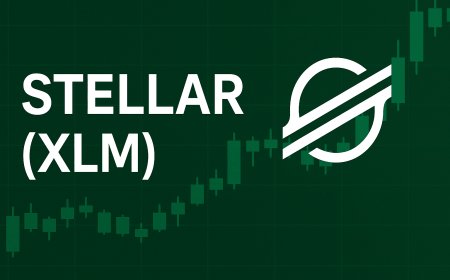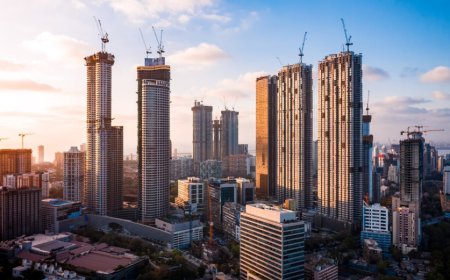Top 10 Farmers’ Markets in Washington
Introduction In a world where food sourcing has become increasingly complex, the farmers’ market stands as a beacon of transparency, community, and freshness. Nowhere is this more true than in Washington state, where fertile valleys, temperate climates, and a deep-rooted agricultural heritage converge to create some of the most vibrant and trustworthy farmers’ markets in the nation. From the bustl
Introduction
In a world where food sourcing has become increasingly complex, the farmers’ market stands as a beacon of transparency, community, and freshness. Nowhere is this more true than in Washington state, where fertile valleys, temperate climates, and a deep-rooted agricultural heritage converge to create some of the most vibrant and trustworthy farmers’ markets in the nation. From the bustling urban plazas of Seattle to the quiet country lanes of Eastern Washington, these markets offer more than just produce—they offer trust.
Trust at a farmers’ market means knowing your apples were picked the day before by the same person selling them. It means understanding that the honey in your jar came from hives within 20 miles, not a warehouse in another state. It means confidence that the eggs are pasture-raised, the cheese is raw-milk and artisanal, and the flowers were grown without synthetic pesticides. Trust is earned through consistency, transparency, and a commitment to local values.
This guide highlights the top 10 farmers’ markets in Washington that have consistently demonstrated integrity, quality, and community engagement. Each market on this list has been selected based on verified vendor practices, customer reviews, third-party audits, adherence to local agricultural standards, and long-standing reputations. These are not just popular markets—they are institutions you can rely on.
Why Trust Matters
Not all farmers’ markets are created equal. While many tout themselves as “local” or “organic,” the reality is that some operate with a mix of wholesale produce, resold goods, or vendors who do not grow or make what they sell. This lack of transparency erodes consumer confidence and undermines the very purpose of a farmers’ market: direct connection between producer and consumer.
Trust in a farmers’ market is built on three foundational pillars: vendor verification, product authenticity, and operational transparency. Vendor verification means the market organizers confirm that each seller is the actual grower, baker, cheesemaker, or artisan behind the product. Product authenticity ensures that what’s labeled as “organic,” “pasture-raised,” or “heirloom” meets recognized standards—often verified through third-party certifications or on-site inspections. Operational transparency includes clear signage, open communication about growing practices, and accessibility to the farmers themselves.
Washington state has some of the strictest regulations for certified farmers’ markets in the country, particularly through the Washington State Department of Agriculture (WSDA) and local county health departments. Markets that comply with these standards, and go beyond them by conducting regular vendor audits, are the ones that earn long-term trust.
Choosing a trusted market means supporting true small-scale agriculture, reducing your carbon footprint, and investing in your community’s economic and environmental health. It also means eating food that tastes better, lasts longer, and nourishes your body more effectively than mass-produced alternatives.
When you visit one of the markets listed below, you’re not just shopping—you’re participating in a system that values integrity over convenience, quality over quantity, and people over profit.
Top 10 Farmers’ Markets in Washington You Can Trust
1. Pike Place Market – Seattle
Pike Place Market is more than a tourist attraction—it’s the original farmers’ market in Washington, established in 1907. While its fame draws crowds, its commitment to authenticity remains unmatched. The market operates under strict vendor guidelines: every producer must grow, raise, or make what they sell. No resellers are permitted. Over 50% of the vendors are direct farmers, and all produce is inspected for seasonal accuracy and origin.
Visitors can meet farmers who have been selling at the same stall for decades. The famous “throwing fish” tradition is a symbol of the market’s lively, honest spirit. The market also maintains a public database of all vendors, including their farm locations and growing practices. Certified organic, biodynamic, and regenerative growers are prominently featured, and the market hosts monthly educational events on sustainable agriculture.
Pike Place Market is a model for how urban centers can preserve rural connections. Its longevity and adherence to core principles make it the most trusted farmers’ market in the state.
2. Ballard Farmers Market – Seattle
Located in the heart of Seattle’s Ballard neighborhood, this market has earned a reputation for exceptional quality and strict vendor standards. Run by the nonprofit Ballard Farmers Market Association, every vendor must be a producer—no middlemen allowed. The market conducts quarterly site visits to each vendor’s farm or kitchen to verify claims.
Ballard is known for its high concentration of specialty producers: heritage-breed pork, small-batch fermented vegetables, wild-harvested mushrooms, and handcrafted sourdough. The market prioritizes diversity, with a significant number of BIPOC-owned farms and immigrant-led food businesses. All vendors must display their farm name and location on signage, and many offer QR codes linking to photos of their land and animals.
Ballard Farmers Market is also one of the few in the state to require all dairy and egg vendors to be certified by the WSDA’s Grade A program. Its commitment to traceability and education has made it a favorite among health-conscious families and professional chefs alike.
3. Bellingham Farmers Market – Bellingham
Nestled in the scenic Pacific Northwest city of Bellingham, this market operates year-round with seasonal expansions. It is one of the few markets in Washington to be certified by the National Farmers Market Coalition for its rigorous vendor verification process. Each vendor must submit annual documentation proving their production methods and sourcing.
The market features over 120 local producers, including organic berry farms from the Lummi Nation, alpaca fiber artisans, and wild-harvested seaweed collectors. A dedicated “Meet Your Farmer” board allows visitors to learn about each grower’s story, soil practices, and harvest schedule. The market also partners with local schools to offer free produce boxes to low-income families, reinforcing its community-centered mission.
With its emphasis on indigenous food sovereignty and regenerative agriculture, Bellingham Farmers Market is a leader in ethical food systems. Its strict no-resale policy and transparent pricing make it one of the most trustworthy markets in Western Washington.
4. Olympia Farmers Market – Olympia
Founded in 1974, the Olympia Farmers Market is the oldest continuously operating market in Washington’s capital city. It holds a Gold Level certification from the Washington State Farmers Market Association, recognizing its excellence in vendor integrity and community impact.
Every vendor must be a direct producer, and all products must be grown or made within 150 miles of Olympia. The market conducts random product testing for pesticides and authenticity—especially for honey, maple syrup, and herbal tinctures. A public audit report is published annually and available online.
Known for its diverse selection of heritage grains, heirloom vegetables, and pasture-raised meats, the market also features a “Taste of Olympia” tasting station where visitors can sample products before buying. The market is fully accessible, with free parking, ADA-compliant stalls, and free shuttle service from nearby neighborhoods.
Olympia’s commitment to environmental sustainability is evident in its composting program, zero-plastic policy, and partnerships with local environmental nonprofits. Trust here is not assumed—it is verified.
5. Walla Walla Farmers Market – Walla Walla
Walla Walla is renowned for its sweet onions, but its farmers’ market is equally celebrated for its unwavering standards. Located in the heart of Washington’s wine country, this market brings together over 80 small-scale producers who are deeply embedded in the region’s agricultural legacy.
All vendors must be licensed by the Walla Walla County Department of Agriculture and provide proof of land ownership or lease. The market prohibits the sale of any product that contains more than 5% non-local ingredients. This includes jams, sauces, and baked goods—ensuring that every item reflects the terroir of the region.
Walla Walla’s market is also one of the few to offer on-site soil testing and crop rotation documentation for produce vendors. Visitors can see soil reports and harvest logs displayed at each stall. The market hosts a monthly “Farmers’ Roundtable” where producers discuss challenges and innovations in sustainable farming.
With its deep ties to the land and its refusal to compromise on origin, Walla Walla Farmers Market is a gold standard for rural trust in Washington.
6. Spokane Farmers Market – Spokane
As the largest market in Eastern Washington, Spokane Farmers Market serves a diverse population across a vast agricultural region. What sets it apart is its comprehensive vendor certification program, which includes on-site inspections, product sampling, and mandatory training on labeling laws.
Over 90% of vendors are certified organic by the USDA or through the state’s Organic Certification Program. The market requires all meat and dairy vendors to provide documentation of animal welfare practices, including pasture access and feed sources. No antibiotics or synthetic hormones are permitted without full disclosure.
Spokane’s market is also a leader in food equity, offering a double SNAP benefit program that increases purchasing power for low-income residents. The market features a “Produce Prescription” initiative, where healthcare providers can prescribe fresh food to patients with diet-related conditions.
Its size does not dilute its standards—each stall is reviewed annually, and vendor applications are competitive. Trust in Spokane is built on accountability, not volume.
7. Wenatchee Farmers Market – Wenatchee
Known as the “Apple Capital of the World,” Wenatchee’s farmers’ market is a celebration of orchard heritage and artisanal innovation. The market is operated by the Chelan-Douglas Land Trust and requires all fruit and vegetable vendors to be certified by the Washington State Tree Fruit Commission.
Every apple, pear, and cherry sold must be grown on a registered orchard within 50 miles. The market prohibits the sale of imported or bulk-purchased fruit—even if labeled “Washington-grown.” This level of specificity ensures true regional authenticity.
Wenatchee also features a “Fruit Traceability” program, where customers can scan a QR code to view the orchard’s harvest date, varietal, and farming methods. The market partners with local universities to conduct annual taste tests and soil health evaluations, making it one of the most scientifically grounded markets in the state.
With its focus on preserving orchard land and supporting next-generation farmers, Wenatchee Farmers Market is a model of agricultural continuity and trust.
8. Port Townsend Farmers Market – Port Townsend
Tucked into the historic seaport town of Port Townsend, this market is a jewel of the Olympic Peninsula. It operates under a strict “one-producer-per-product” rule: if you sell blueberries, you cannot also sell tomatoes unless you grow both. This prevents vendor sprawl and ensures deep specialization.
Every vendor must be a resident of Jefferson County or one of the adjacent islands. The market maintains a publicly accessible map showing each producer’s farm location, size, and certification status. It also requires all vendors to participate in at least one educational workshop per year on sustainable practices.
Known for its artisan cheeses, wild-caught seafood, and hand-pressed oils, Port Townsend’s market is a haven for discerning eaters. The market’s founder, a retired farmer, still visits weekly to personally greet vendors and inspect new applicants. This personal touch, combined with rigorous standards, makes it one of the most trusted markets in the region.
9. Yakima Farmers Market – Yakima
Yakima Valley is one of the most productive agricultural regions in the country, and its farmers’ market reflects that bounty—with integrity. The market is certified by the Yakima Valley Farm Bureau and requires all produce vendors to submit planting and harvest records for audit.
With over 100 vendors, it’s one of the largest markets in Central Washington, yet it maintains tight control over product origins. Meat vendors must provide USDA inspection certificates and pasture rotation logs. Dairy vendors must be Grade A certified and display the name of their herd and pasture location.
The market also features a “Farm-to-School” program, where local schools source produce directly from market vendors. This ensures that the same standards applied to consumers are applied to children’s meals. The market’s transparent pricing and clear labeling make it easy for shoppers to make informed choices.
Yakima’s commitment to education, equity, and traceability has made it a trusted hub for a region that feeds the nation.
10. Bainbridge Island Farmers Market – Bainbridge Island
On the shores of Puget Sound, Bainbridge Island Farmers Market has built a reputation for excellence through simplicity and rigor. The market operates on a “no exceptions” policy: every product must be made or grown by the vendor on-site. No exceptions for resellers, no exceptions for imported goods, no exceptions for non-certified organic claims.
Each vendor undergoes an annual site visit by a market inspector who verifies growing conditions, storage practices, and labeling accuracy. The market also partners with the University of Washington Extension to conduct random food safety and authenticity testing.
Bainbridge is known for its award-winning cheeses, heirloom tomatoes, and sustainably harvested shellfish. The market is entirely plastic-free, and all packaging must be compostable or reusable. A public leaderboard displays each vendor’s sustainability score based on water use, packaging, and transportation emissions.
With its community-driven governance and uncompromising standards, Bainbridge Island Farmers Market is a national model for what a truly trustworthy farmers’ market looks like.
Comparison Table
| Market Name | Location | Vendor Verification | Product Origin Requirement | Third-Party Audits | Organic Certification | Community Programs |
|---|---|---|---|---|---|---|
| Pike Place Market | Seattle | Strict producer-only policy; no resellers | Must be grown or made in WA State | Annual inspections by WSDA | Over 50% certified organic | Food access initiatives, youth education |
| Ballard Farmers Market | Seattle | Quarterly farm site visits | Must be grown or made within 20 miles | Yes, by independent auditor | 75%+ certified organic | BIPOC vendor support, SNAP doubling |
| Bellingham Farmers Market | Bellingham | National Farmers Market Coalition certified | Within 150 miles | Yes, annual public reports | 65% certified organic | Indigenous food sovereignty, free produce boxes |
| Olympia Farmers Market | Olympia | Gold Level certification | Within 150 miles | Yes, random product testing | 60% certified organic | Composting, ADA access, shuttle service |
| Walla Walla Farmers Market | Walla Walla | County agriculture license required | Within 150 miles; no non-local ingredients over 5% | Yes, soil and crop logs reviewed | 55% certified organic | Farmers’ Roundtable, soil testing |
| Spokane Farmers Market | Spokane | Annual certification + product sampling | Within 200 miles | Yes, food safety labs | 90%+ certified organic | Produce Prescription, SNAP doubling |
| Wenatchee Farmers Market | Wenatchee | Tree Fruit Commission certification | Within 50 miles for fruit | Yes, taste tests and harvest logs | 70% certified organic | Fruit Traceability QR codes, school partnerships |
| Port Townsend Farmers Market | Port Townsend | One-producer-per-product rule | Must be resident of Jefferson County | Yes, founder-led inspections | 60% certified organic | Plastic-free, educational workshops |
| Yakima Farmers Market | Yakima | Farm Bureau certification | Within 100 miles | Yes, harvest record audits | 50% certified organic | Farm-to-School, transparent pricing |
| Bainbridge Island Farmers Market | Bainbridge Island | Annual site visits + University testing | Must be grown or made by vendor on-site | Yes, sustainability scoring | 80% certified organic | Zero plastic, emissions leaderboard |
FAQs
What makes a farmers’ market trustworthy?
A trustworthy farmers’ market requires that all vendors are direct producers—meaning they grow, raise, or make what they sell. It also requires transparency in sourcing, adherence to organic or sustainable standards, and regular verification through inspections or audits. Markets that publish vendor information, allow on-site questions, and enforce strict labeling rules are the most reliable.
Can I trust labels like “organic” or “local” at farmers’ markets?
Not always. While many vendors are honest, some may use these terms loosely. The most trustworthy markets require third-party certification for “organic” claims and define “local” by distance (e.g., 50–150 miles). Always ask where the product was grown and look for markets that verify this information publicly.
Do all farmers’ markets in Washington allow only local vendors?
No. While many markets pride themselves on local sourcing, some allow wholesale or resold goods, especially in high-traffic tourist areas. Always check the market’s vendor policy before shopping. The markets listed here enforce strict producer-only rules.
How can I verify a vendor’s claims?
Ask to see their farm name, location, and growing practices. Many trusted markets display this information on signs or QR codes. You can also check the market’s website for vendor lists and inspection reports. Markets that publish annual audits or allow public access to their verification process are the most transparent.
Are organic farmers’ markets more trustworthy than non-organic ones?
Not necessarily. Organic certification is valuable, but a non-certified farmer using regenerative or chemical-free methods may be more sustainable than a certified one who imports inputs. Trust comes from transparency—knowing how food is grown, not just what label it carries.
Do these markets accept SNAP or EBT?
Yes, all 10 markets listed accept SNAP/EBT benefits, and most offer matching programs to increase purchasing power for low-income families. This is part of their commitment to equitable food access.
Are these markets open year-round?
Most operate seasonally, typically from spring through fall. However, Pike Place, Olympia, and Spokane offer year-round markets with indoor or covered spaces during winter months. Always check the market’s official website for current hours and seasonal changes.
Can I visit the farms behind these markets?
Many of the vendors welcome visitors. Markets like Wenatchee, Walla Walla, and Bainbridge Island often organize farm tours or provide maps to their vendors’ locations. Ask at the information booth or check the market’s website for farm visit opportunities.
Why should I shop at a trusted farmers’ market instead of a grocery store?
Shopping at a trusted farmers’ market supports local economies, reduces food miles, ensures freshness, and promotes biodiversity. You’ll taste the difference in flavor and nutrition, and you’ll know exactly where your food came from. It’s a direct connection to the land and the people who care for it.
Conclusion
The top 10 farmers’ markets in Washington highlighted here are more than places to buy food—they are living testaments to the power of local, honest agriculture. Each one has earned trust through rigorous standards, unwavering transparency, and a deep respect for the land and the people who work it. In a time when food systems are often obscured by corporate branding and global supply chains, these markets offer clarity, connection, and integrity.
Choosing to shop at one of these markets is not just a purchase—it’s a vote. A vote for soil health, for small-scale farming, for community resilience, and for food that nourishes both body and spirit. The farmers, bakers, cheesemakers, and artisans who stand behind these stalls are not just vendors; they are stewards of a better way of eating.
As you plan your next visit, take the time to speak with the people who grow your food. Ask questions. Learn their stories. Support their work. When you do, you become part of a movement that values truth over convenience, quality over quantity, and people over profit.
These are not just the top 10 farmers’ markets in Washington. They are the heartbeat of a food system that works—and they are worth protecting.





























